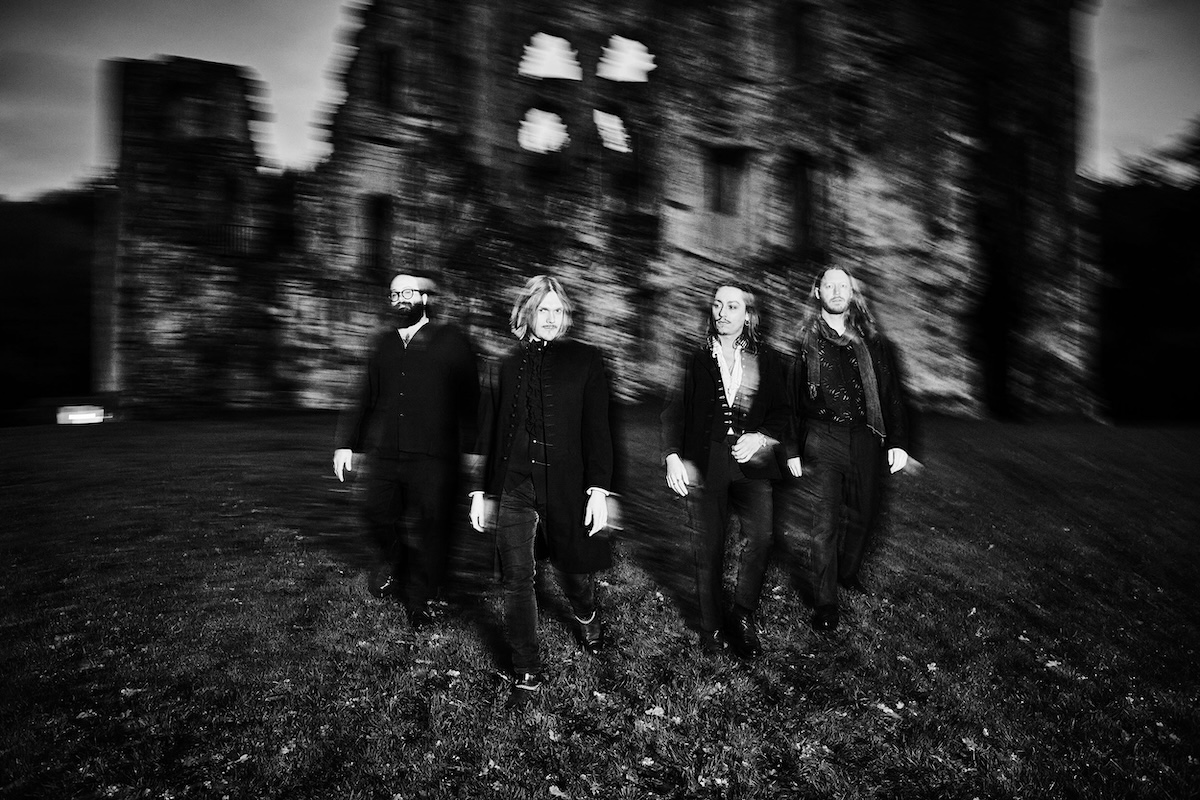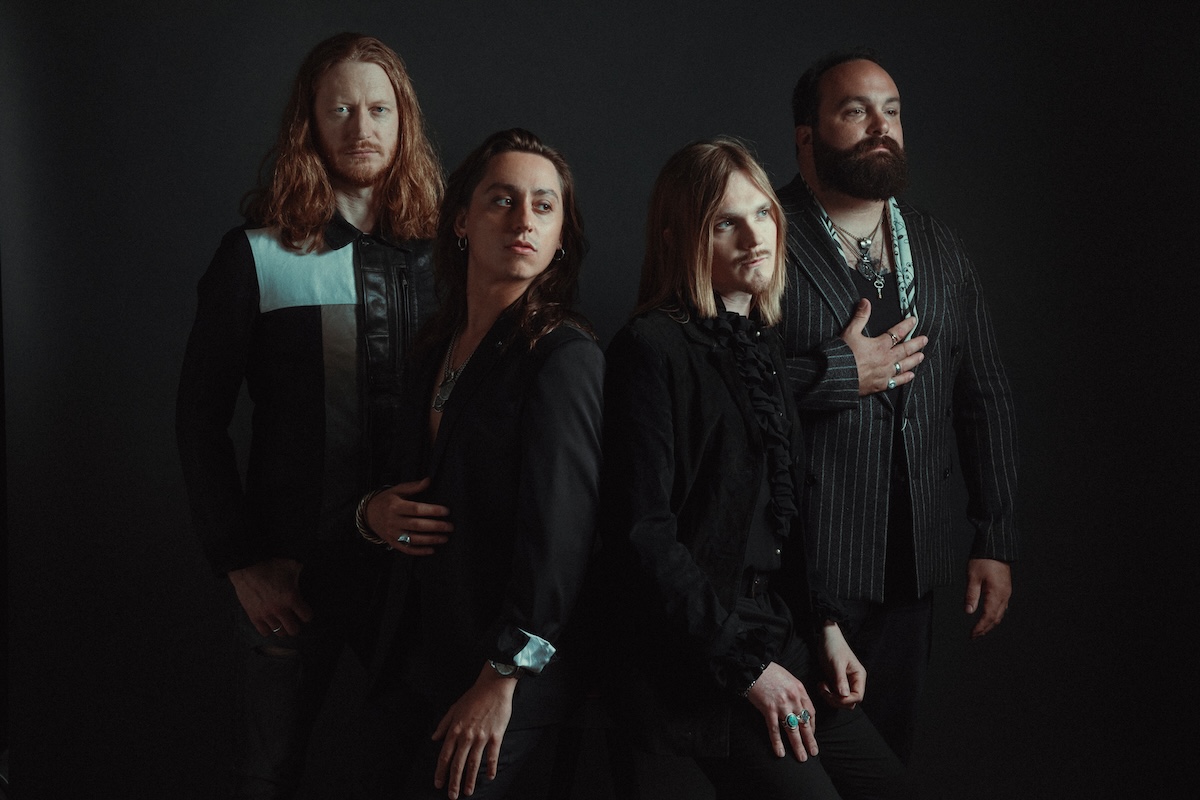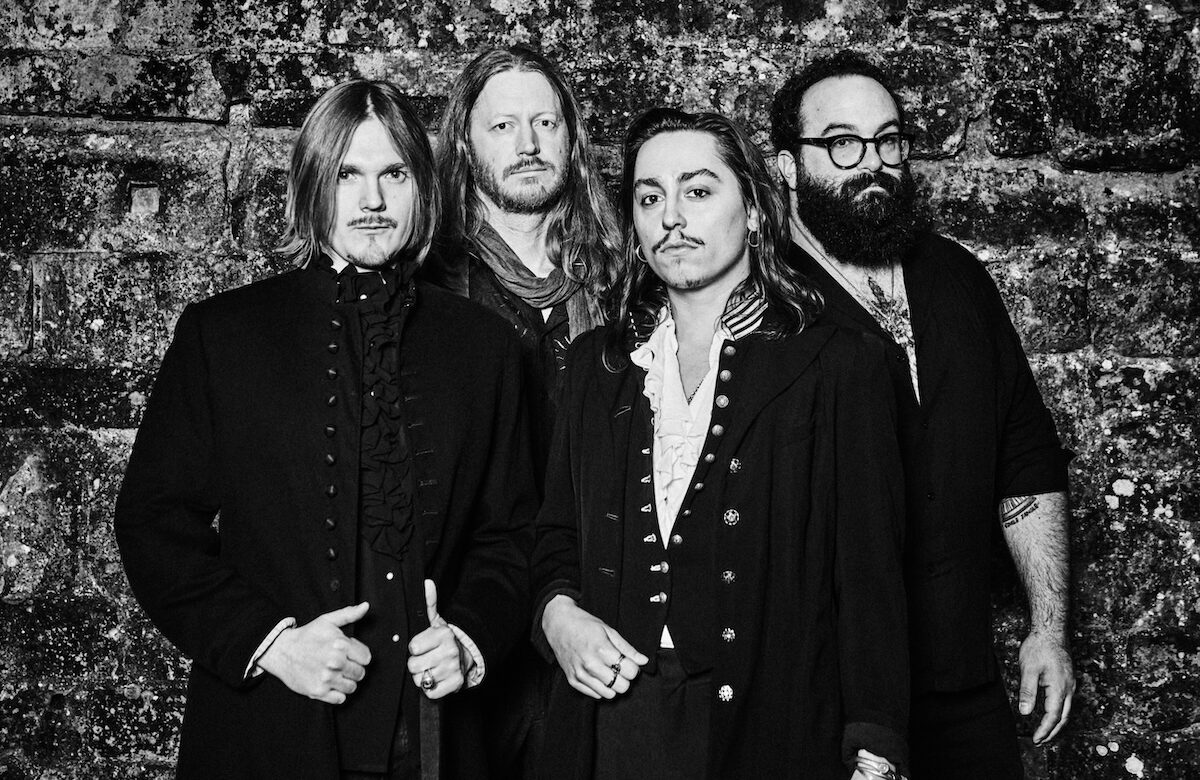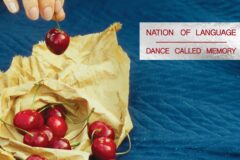Jake Kiszka didn’t need to put another musical project on his agenda. As Greta Van Fleet’s guitar player, Kiszka has been on an accelerating rocket ship since the group’s major label launch in 2017. But it wasn’t enough for Kiszka to play blistering live shows with his brothers in their Grammy-winning group. On their last U.S. tour in 2024, he joined Ida Mae’s Chris Turpin with their project, MIRADOR, as GVF’s opening act, effectively doing double duty every night.
MIRADOR’s self-titled debut arrives this month. Kiszka and Turpin are quite giddy talking about it and the musical polyamorous relationship they find themselves in—one that is rivaling the love they have for their primary bands. They laugh out loud when I make this analogy with Kiszka adding, “That’s a beautiful metaphor.”
The two are wonderfully witty and elaborate, but not the least bit long-winded talking about MIRADOR, as they’re both storytellers. This translates into MIRADOR’s narrative and poetic lyrics. The group is rounded out by drummer Mikey Sorbello and bass-keyboard player Nick Pini. The music leans more toward Ida Mae than Greta Van Fleet, with Kiszka and Turpin both songwriting, playing guitar, and singing. The combination of the two amplifies the blues-based rock ‘n roll for which they are known. “It’s not going to be a hip-hop/rap country record,” Kiszka jokes. “The second album…who knows?” Turpin adds.
Speaking from his home in downtown Nashville, Turpin is a great foil for Kiszka—also a Nashville resident—who is driving around “the wilds of Van Nuys” in Los Angeles during this interview. Kiszka occasionally dips into an English accent, unavoidable with the amount of time he’s been spending with the English-born and -bred Turpin. They are charming as they riff off each other, in conversation as in guitar playing.
Kiszka isn’t on camera for this interview, but his avatar is a medieval-looking seal that includes a stylized cross, a skull, a goblet, and his initials. It is so fantastic I immediately start designing one for myself in my head and by the end of the interview, I suggest that Turpin get one of his own. He replies, “I have one! It’s already happened. It was inevitable. You hang out with Jake long enough and you start talking like a pirate and you get a seal.”

Considering how established and busy your primary groups are, why do MIRADOR?
Jake Kiszka: Well, that is a fascinating story, one of adventure, one of love…It was years ago now that Chris and I first bumped into each other. Ida Mae did one of the Greta Van Fleet tours. We’re somewhat religious about the people we go on tour with and the music and are really involved with those things. I had listened to Ida Mae, and I was really blown away by what Chris and Steph were doing. I went to the guys and said, “You have no choice, no quarter. It’s going to be Ida Mae.”
We brought Ida Mae with us to North America. It was incredible seeing them live and what they’re doing. As a guitar player, I was really drawn to Chris and his playing. I’ve seen a lot of players, and I suppose it’s the ability to authentically play the music that we’ve been inspired by, that we fell in love with. A lot of people do interpretations or adaptations, but what really impressed me the most about Chris was his ability to play in line, and authentically, that type of blues and guitar playing in rock and roll music. I’ve not seen very many people that know how to do that. It’s a lost art form. I was in awe of that. In some ways I have to blow some smoke up my own ass. It must have gone both ways.
Chris Turpin: Absolutely not, absolutely dreadful, terrible. I don’t know what got me into this mess.
JK: Time went on and Chris had shown up in the catering room one day, sort of professing, “Where the fuck have you guys been? I’ve been looking for a band like you for forever.” That sparked us talking. It was the flattery. We were up late nights playing guitar, drinking wine until 3 in the morning on the bus, a lot. That was a constant practice on that tour of Chris and I playing harmonica and blues. Ever since, we’ve become buddies. We started writing around the time COVID happened. Chris and Steph were living in Nashville at the time. Chris invited me to play on the Ida Mae Click Click Domino record that they were working on at the time.
Shortly after, I baited Chris into coming over to my old Victorian house in East Nashville. The idea was just to write a few songs, because we didn’t know what was going to come of it. There were no objectives. There were no prerequisites. It was just going to be experimentation. The first day, Chris and I wrote three songs. The frenetic wildness and energy of that moment, it was like, “Well, let’s come back and let’s do it again tomorrow.” A few days later, we’d constructed probably half of the record. So short story long…
For us fans, we love the idea of members of different bands we like getting together. It feels like we’re matchmakers.
CT: There was quite a long period of sort of flirting and courting and not quite daring to talk to one another. That tour was intense and personal. You live in this Polaroid world for a second, this hyper-intense way of living, and then it’s gone. But you’re very, very present when you’re in it. In the aftermath of the tour, getting together and having dinner and getting drinks and daring to talk to one another, we’re both quite quiet and, in an odd way, insecure when it comes to discussions of creativity. Jake’s only worked with his brothers, and I’ve only worked with my wife. It was a very different scenario for the two of us to get together and to kiss took some time.
JK: There was a lot of foreplay.
MIRADOR is not casual jamming and if something comes out of it, it’s no big deal. Your getting together is a big deal.
JK: There was some pressure around that, especially to begin with. We knew that if this was going to be a thing, there was going to be quite a bit of scrutiny around it from Ida Mae fans and Greta Van Fleet fans and everybody. In one way or another, there’s a skepticism about it. We really have to show up. We really have to deliver. In one way, as a promise to ourselves. But in another way, it was trying to do our best to represent this idea. It was trying to show people not only MIRADOR as a band, but that it exists because of this relationship and friendship and brotherhood. That’s part of the story. The reason we did this to begin with was because the philosophy, what MIRADOR means, transcends the music.
What are the contrasts between the American and English perspectives on the music you’re drawn to?
JK: The term MIRADOR itself was a metaphoric statement for the age-old relationship between Europe and America, and the influences that have cross-pollinated, and the influences that were created. I grew up with American music: old country, bluegrass, folk, soul music, R&B, blues, obviously Motown, being from Michigan, I was surrounded by that. Because I was surrounded by that, it lacked danger, excitement, intrigue. Music from Europe was more exciting. I was listening to European folk music, Northern Irish Celtic music, and Eastern European stuff. Chris, in the same way, was really looking to America, “the New World,” to inform his influences. It was a fascinating and ultra creative circumstance to be in a room together, trading these cultural heritage influences. It’s really made the two of us look back at the things we grew up around, or the things that our countries have created, and that’s been a hugely interesting anthropological study for MIRADOR.
CT: It has been certainly. Both of us are obsessed and in the details and nuance and following the bloodlines and traces back to the music we love. That was absolutely a piece of the formation and the language of MIRADOR, and what we wanted it to be. It had to be built on a foundation that’s much stronger than, “Hey, let’s get together and jam and make some riffs.” That’s a piece of the jigsaw, but that’s not what either of us were interested in doing.
What do you feel you can do with MIRADOR, or that MIRADOR does for you creatively that you can’t with your primary bands?
CT: Anyone that’s been in an outfit or a band for a certain period of years, you stitch together your own universe and world and language and vernacular, and there’s things you don’t do. What is so exciting about the birth of a project is that it’s no holds barred. Everything is possible. Jake and myself, knowing how serious we are about what we do and how much we care, it was fascinating for me meeting another player that was so excited about the nuance and all the details we could gather together. We barely slept in some of those early sessions, because we were buzzing with ideas and pieces we could pull together. It allows you a sense of freedom.
It truly is a sense of exploration, destiny, and excitement. For me, it was more a case of, I’ve been in rock bands and I’ve done acoustic music. I’ve done all the pieces of this jigsaw, and it finally felt like we were at a moment where the Rubik’s cube was clicking together. All these strands of my life had been leading up to a moment where this made perfect sense. Jake and his brothers is a different scenario, right Jake?
JK: I don’t have any freedom, fuck those guys [laughs]. I’ll put it this way, there’s a group of people you choose to be with, and then there’s another group of people you’re stuck with. To Chris’ point, it was so much of the culture beyond the music itself, which was going to be fascinating to play with. To design and couture this structure around MIRADOR, what it was going to look like, what it was going to feel like, what it was going to taste like, what was the construction of this new world that we were building? And it was from the foundation up. Having the sonic interplay space between North America and Europe was a huge component. Three-fourths of the group members being English influenced the sound quite a bit. It was, in many ways, intentional. To lean into that was going to immediately separate it from things I’ve done in the past, and Chris as well.
How is the working process and communication different from with your primary bands?
CT: I’d never written at such a pace. I’d been more of a solo writer. With me and my wife, she’d be more of a curator, and I would write. I never had a Lennon and McCartney, Jagger and Richards thing, which is the aim of the game when you get into writing, especially in a rock and roll environment. I’ve done plenty of co-writing and wasn’t looking for it and didn’t expect it. With Jake, there was immediately an excitement and pace that I hadn’t experienced working with anybody else across the course of my career. There was this sense of excitement and togetherness, which was pretty rare. But then, in similar ways, me and Jake have been very aligned on the visual aspects and how we want it to look, taste, and feel. Thankfully we’re on the same page in that respect—so far. That’s been a blessing, as far as I’m concerned.
JK: In terms of sort of working in the scenario of four brothers [including Danny], it’s entirely different. The creative input is coming from four different sides of the table. There’s a stark contrast because there’s so many ideas. You’re really chasing a moving target, and that’s exciting, and it’s exhilarating, and it holds its place within the chemistry of Greta Van Fleet. But I’d never really worked with another person outside of my brothers. That creative kinship is a rare thing. I have written or worked with other people where we’re seeing eye-to-eye to a certain degree, but not completing the other one’s sentences. It really started with a guitar, the phrasing. It was evident we were coming from the same place, that we spoke the same language, that our musicality and that vernacular was going to be shared and intertwined, because it was that way with the guitars. There was no question that if we could play together like that, with that kind of chemistry, we were of one mind. It was two people locked into one thing. I never had that before. I’m working in the sphere of many minds chasing this moving target. It was the two of us walking into that one place, in that one period of time, and we knew that was going to work. An interesting contrast to what I’ve been used to.


What brought you to Dave Cobb as producer?
JK: Chris and I had both produced other projects in the past and had lots of experience doing it. The concept was we would produce the record ourselves. But in reality, what we were dealing with based on the newfound chemistry of this band and infancy of where we found ourselves was we’re going to need an external perspective, a shepherd that could keep the herd in line and warm. And because we were going to be focused and entirely consumed by vocals and guitar playing, in song construction and writing, how would we be able to balance the sonic aspects and some of the production?
Chris and I compiled the index of producers we’d worked with in the past, and producers that could have potentially worked for the material that we had written. Dave’s name was fairly high on that list based on what MIRADOR was going to become and what we were aiming at. He was going to be able to capture what was coming out of MIRADOR.
Recording a rock and roll record is this lost art form. I truly believe there are maybe a handful of people on this planet alive that can actually record a rock and roll record, and I believe Dave Cobb is one of them.
CT: It’s a huge technical skill set with incredible amounts of knowledge of equipment and timing and things that people aren’t privy to anymore. Me and Jake have been lucky to be in some big studios with some extraordinary producers. If you don’t have that knowledge, if you’ve never seen it, that’s how it dies. We were working with Dave on pieces of equipment from the ’50s, ’60s, and ’70s. There’s not many people that can even run that equipment, let alone understand the sonic differences of what it does.
How do you know if something you come up with is better suited for MIRADOR or for your primary bands?
JK: With the developed language MIRADOR has now, that crafted vernacular, it becomes a bit more evident. To me, in some ways, there are filters. MIRADOR has a filter. So does Ida Mae. So does Greta Van Fleet. If there’s a basic construction of a song that Chris or I have, it could go either way. If you take the fundamental structure of any of these songs and you force them through Greta Van Fleet, there’s obviously going to be other hands and minds involved, and that will take a shape that it wouldn’t have if it was processed through the filter of MIRADOR.
CT: There’s different ways we both write. Having lived and worked and breathed in Jake’s world, I feel a lot more of where he comes from. I know how I like to write, but it’s the synthesis of the two worlds where things get really interesting. That was pure fluke on the first record in the time we had to breathe those two things together. It becomes this strange synthesis, kind of like that thing in Alien. We pull it together and craft it.
We seem to know very quickly if what we have is going to work. The issue has actually been that it gets a little bit nerve wracking when we both get acoustic guitars out, because we know that shit is about to start happening, and we need to be ready. We’ve made conscious choices to put the guitars down a couple of times because we should just hang out for a beat. It’s beyond exciting, and terrifyingly exhausting. It’s what we both live for.




